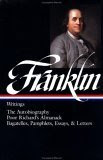More from Black Lamb and Grey Falcon.
As we grow older and see the ends of stories as well as their beginnings, we realize that to the people who take part in them it is almost of greater importance that they should be stories, that they should form a recognizable pattern, than that they should be happy or tragic. The men and women who are withered by their fates, who go down to death reluctantly but without noticeable regrets for life, are not those who have lost their mates prematurely or by perfidy, or who have lost battles or fallen from early promise in circumstances of public shame, but those who have been jilted or were the victims of impotent lovers, who have never been summoned to command or been given any opportunity for success or failure. Art is not a plaything, but a necessity, and its essence, form, is not a decorative adjustment, but a cup into which life can be poured and lifted to the lips and be tasted. If one's own existence has no form, if its events do not come handily to mind and disclose their significance, we feel about ourselves as if we were reading a bad book. We can all of us judge the truth of this, for hardly any of us manage to avoid some periods when the main theme of our lives is obscured by details, when we involve ourselves with persons who are insufficiently characterized; and it is possibly true not only of individuals, but of nations. What would England be like if it had not its immense Valhalla of kings and heroes, if it had not its Elizabethan and its Victorian ages, its thousands of incidents which come up in the mind, simple as icons and as miraculous in their suggestion that what England has been it can be again, now and for ever? What would the United States be like if it had not those reservoirs of triumphant will-power, the historical facts of the War of Independence, of the giant American statesmen, and of the pioneering progress into the West, which every American citizen has at his mental command and into which he can plunge for revivification at any minute? To have a difficult history makes, perhaps, a people who are bound to be difficult in any conditions, lacking these means of refreshment (55-56).I love how West will veer without warning into the deep waters of generalization. This habit used to be more common among writers than it is now, and one can see why the practice would have been abandoned, since there is such obvious arrogance in it, and potential for error. Yet watching West generalize is breathtaking, because even when the details don't work, she's usually onto something. (How could she not be, when she's got so many interesting observations scattered across the landscape at one time?)








